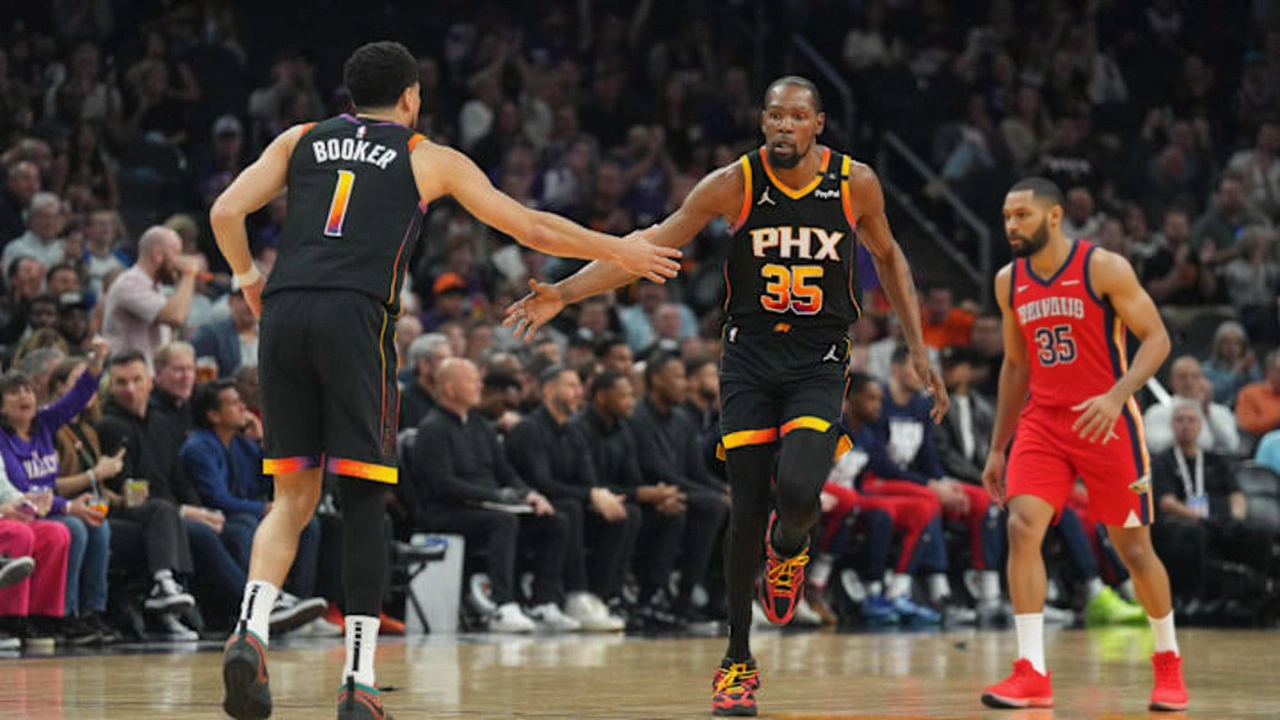On Friday, November 21, 2025, the Minnesota Timberwolves (10-5) head to the Mortgage Matchup Center in Phoenix to face the Phoenix Suns (9-6) in a Western Conference clash that could redefine playoff seeding narratives. Tip-off is set for 9:00 p.m. Eastern Time, with TV coverage on FanDuel Sports Network, AZFamily, and Suns+. What makes this game more than just another November contest is the stark contrast in form: Minnesota has dominated Phoenix in their last four meetings, yet the Suns are 7-1 against the spread at home this season. The twist? The Timberwolves are favored by 3.5 to 4.5 points — but the numbers suggest they might be walking into a trap.
Conflicting Lines, Conflicting Stories
Betting markets are split, and that’s not a coincidence. FOX Sports lists Minnesota as 4.5-point favorites with a total of 230.5, while Leans.ai and YouTube analysts see the line at 3.5 points with a 234.5 over/under. Even Covers.com throws in variations: Over 232.5 at -108, Under 230.5 at -104. The moneyline tells its own tale: Minnesota at -161, Phoenix at +145. That’s not just a line — it’s a signal. Oddsmakers are split because the data is split. Minnesota scores 120.6 points per game and holds opponents to 114.1. Phoenix scores 119.3 and allows 114.1. Both teams are nearly identical offensively. But defense? That’s where the real story hides.Home Court Magic and the Underdog Edge
Here’s the thing: Phoenix has been a nightmare for favorites this season. They’ve been underdogs in eight games and won three — not because they’re lucky, but because they’ve mastered the art of slowing games down, controlling the glass, and forcing opponents into messy possessions. At home, they’re 7-1 against the spread. That’s not a fluke. It’s a system. And it’s working. Meanwhile, Minnesota’s road ATS record is abysmal — they’ve covered just 36.4% of their away games, according to Leans.ai. They’ve won 9 of 10 games when scoring over 114.1 — but Phoenix gives up exactly that. So if Minnesota scores 115? They’re still in a fight.And then there’s the rebounding. Leans.ai nails it: "Rebounding becomes the critical balance point." Minnesota thrives on second-chance points and fast breaks. Phoenix? They’ve won the first quarter in nine of their last 10 home games against Minnesota. That’s not about scoring — it’s about control. If the Suns win the boards early, they force Minnesota into half-court sets where their perimeter defense — led by Devin Booker — can lock down Anthony Edwards.
The Players Who Decide This Game
Anthony Edwards is Minnesota’s engine — averaging 28.7 points, 5.4 rebounds, and 4.1 assists. But he’s turned the ball over 4.2 times per game on the road. Phoenix’s defense thrives on live-ball steals. One misstep, one over-dribble, and the Suns are off to the races. Meanwhile, Devin Booker is having a career year: 26.3 points, 6.1 assists, and 4.8 rebounds. He’s shooting 48.9% from three on 8.2 attempts per game. When he’s hot, the Suns don’t need to rebound as much — they just shoot over you.Minnesota’s strength? Depth. Karl-Anthony Towns is back to form, averaging 22.1 points and 9.8 rebounds. But Towns has struggled against Phoenix’s zone schemes in the past — especially when they switch everything and force him into mid-range isolations. That’s exactly what Phoenix will do.

Why the Underdog Might Win
Phoenix doesn’t need to dominate. They just need to avoid collapse. Their average second-half scoring at home: 59.21 points. Minnesota’s away second-half average: 58.9. That’s a dead heat. The Suns have won the last 10 overall matchups against Minnesota, 8-6. And in those games, the total points have averaged 231.2 — right on the over/under. This isn’t about who’s better. It’s about who handles pressure better.FOX Sports predicts a 118-116 Suns win. YouTube analysts agree: "Phoenix this year. Plus 4.5." Even Scores24.live, which otherwise favors Minnesota, admits the Suns’ home-court rhythm is too strong to ignore. The Timberwolves have won four straight against Phoenix — but all four were in Minnesota. This is different. This is Phoenix’s house. And the Suns have turned their home court into a fortress of slow, methodical basketball.
What’s at Stake
This isn’t just about one game. It’s about identity. Minnesota wants to be seen as a true title contender — but they’ve lost three of their last five road games by double digits. Phoenix? They’re building something quieter but more dangerous: a team that wins ugly, wins close, wins when no one expects them to. If the Suns pull this off, they’ll be 10-6 and in the top five of the West. If Minnesota wins, they’ll be 11-5 — but still carry the weight of road struggles.And here’s the quiet truth: the game will be decided in the final four minutes. Not by stars. Not by stats. By who wants it more. Who’s willing to fight for every loose ball. Who’s willing to take the last shot — even if it’s contested. That’s not in the numbers. That’s in the grit.
Frequently Asked Questions
Why are betting lines so inconsistent between sources?
The inconsistency stems from different weighting of factors: FOX Sports emphasizes recent head-to-head dominance by Minnesota, while Leans.ai and YouTube analysts prioritize Phoenix’s home-court ATS record (7-1) and Minnesota’s poor road ATS performance (36.4% coverage). Each platform uses slightly different models — some factor in pace, others in turnover tendencies — leading to variations in point spreads and totals.
How does Phoenix’s home-court performance compare to Minnesota’s road struggles?
Phoenix is 7-1 against the spread at home this season and averages 119.4 points per game at the Mortgage Matchup Center. Minnesota, by contrast, is 2-4 ATS on the road and has lost three of their last five away games by double digits. Their offense drops by 3.8 points per game on the road, while Phoenix’s defense tightens up — holding opponents to 111.3 points per game at home, compared to 117.1 on the road.
What’s the most critical factor in this matchup?
Rebounding and turnovers. Minnesota relies on second-chance points and fast breaks — but Phoenix leads the league in defensive rebounding percentage among Western Conference teams. If the Suns win the glass and force Minnesota into 15+ turnovers, they neutralize the Timberwolves’ pace advantage. Conversely, if Minnesota forces 18+ Phoenix turnovers, they can turn the game into a track meet — their preferred style.
Why is the over/under so high despite defensive stats?
Both teams are top-10 in pace, and their offensive efficiency is nearly identical. Minnesota shoots 49.3% from the field — the best in the NBA — while Phoenix allows only 46.6%. Meanwhile, Phoenix scores 119.3 points per game, and Minnesota allows 114.1. The combination of elite shooting, high possessions, and late-clock execution pushes totals toward 230+. Even with strong defense, the scoring volume is unavoidable.
Who has the edge if the game goes to overtime?
Minnesota. The Timberwolves have played in four overtime games this season — winning three. Their depth, especially with Malik Beasley and Jaden McDaniels providing energy off the bench, gives them an edge in extended play. Phoenix has only played one overtime game — a loss. Their starters play heavy minutes, and fatigue becomes a factor past 48 minutes.
What’s the historical context between these two teams?
Minnesota has won four straight against Phoenix, including a 124-118 win in Phoenix last January. But those wins came during Phoenix’s mid-season slump. Since then, the Suns have gone 11-3, with Devin Booker elevating his game and JaVale McGee adding rim protection. The last 10 overall matchups show Phoenix winning 8 of them — suggesting Minnesota’s recent dominance may be an anomaly, not a trend.
